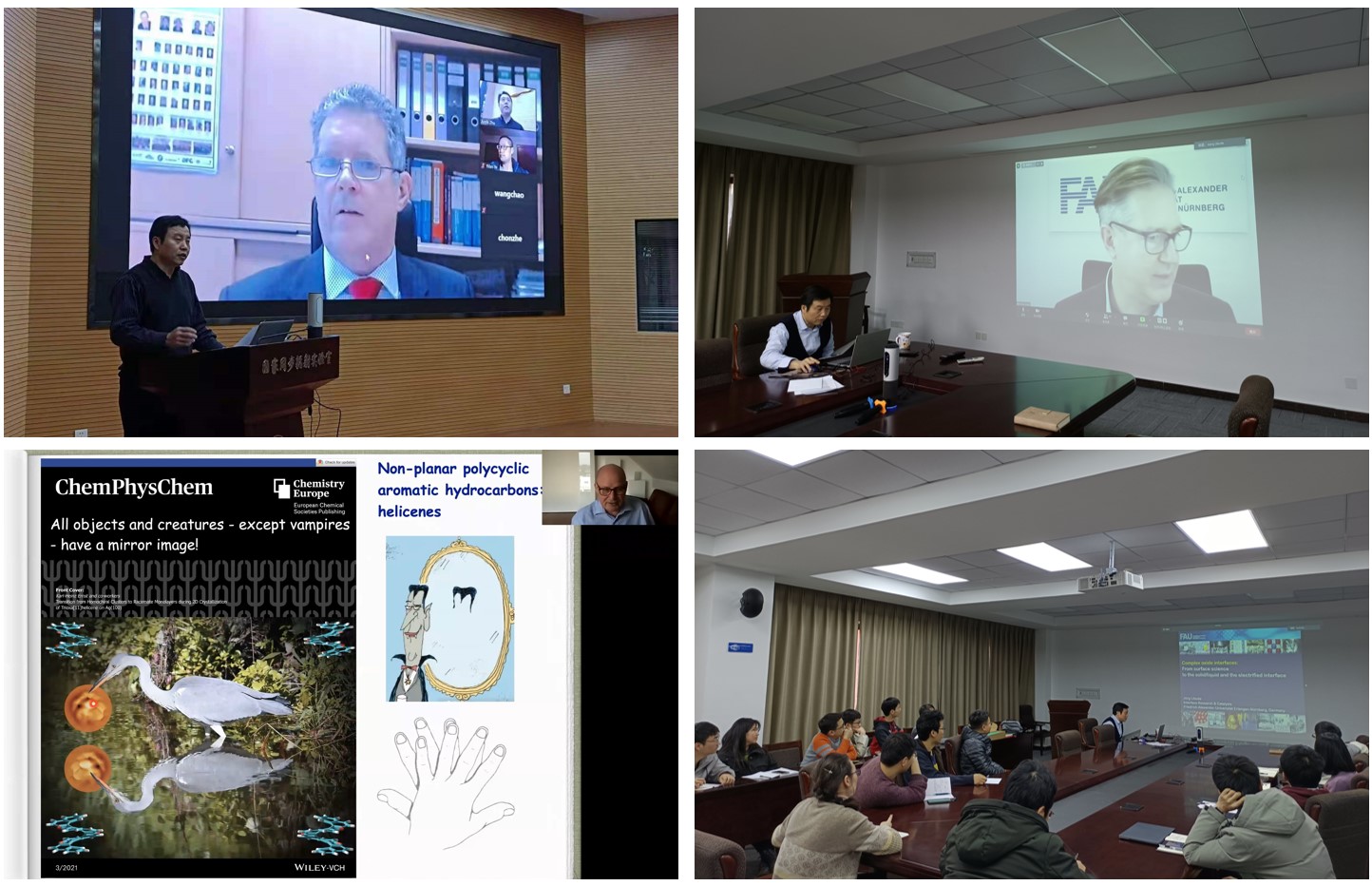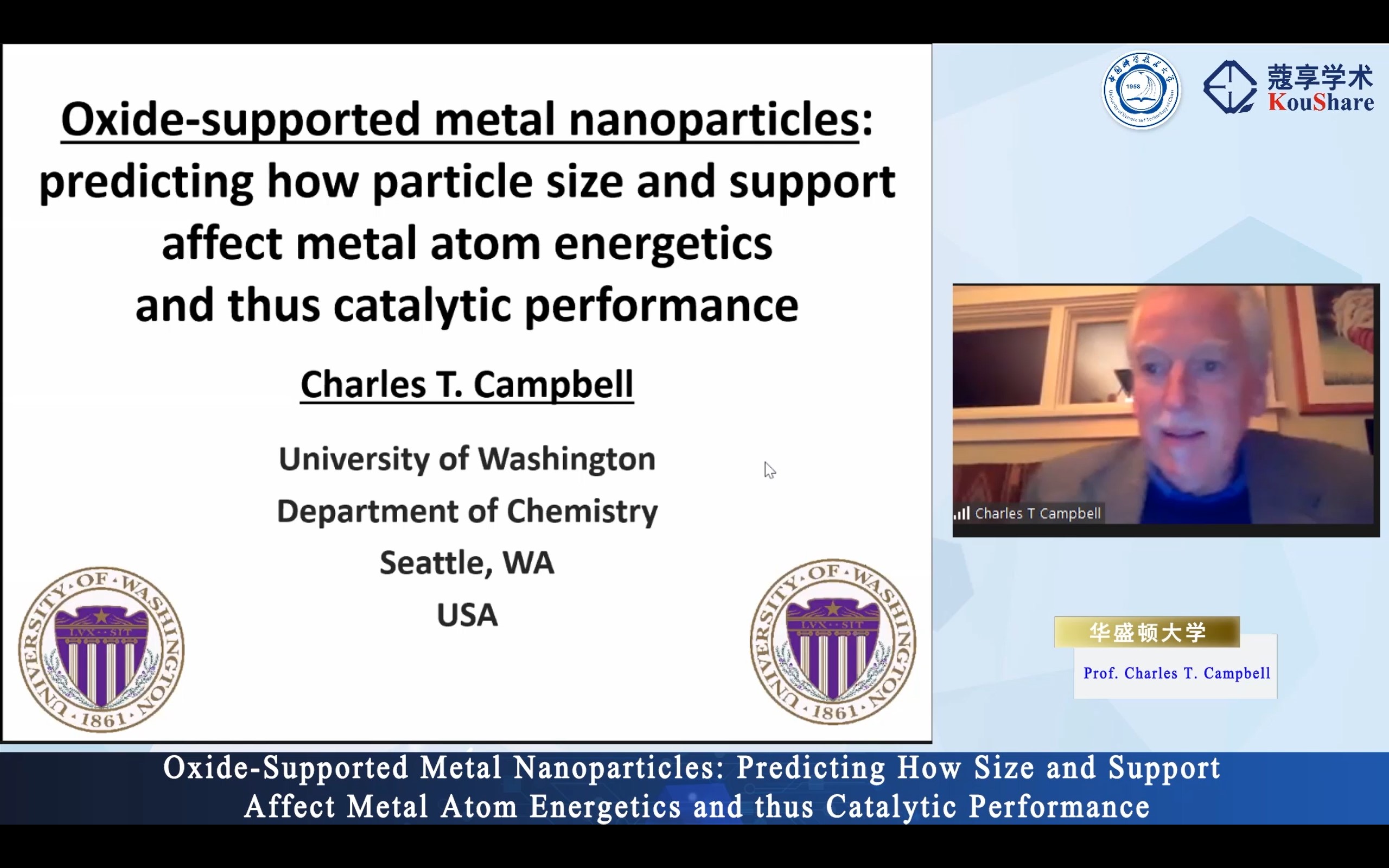From November 16, 2020 to March 10, 2021, the International Cloud Forum series Surface Science and Catalysis Studied by Advanced Techniques hosted by Professor Zhu Junfa has successfully held 12 online lectures. Under the special background of the novel coronavirus epidemic, the Forum has provided a successful model for international academic exchanges in the form of online academic lectures. The forum invited internationally renowned academicians, experts and scholars from the United States, Germany, Switzerland, Austria, Spain, Singapore and South Korea, who are active in the field of surface science and catalysis research, and introduced the latest results of the application of advanced characterization techniques and research methods for some cutting-edge scientific issues in the field of surface science and catalysis.

The forum covers catalytic surface science (from ultra-high vacuum model catalysis to actual catalysis, from gas-solid interface, liquid-solid interface to solid-solid interface), ionic liquid surface science, two-dimensional material table interface and devices, surface synthesis chemistry, X-ray spectroscopy theoretical calculation and complex oxide interface design. Various synchrotron spectroscopy (including angular resolved photoelectron spectroscopy (ARPES), resonant photoelectron spectroscopy (RPES), near-atmospheric pressure photoelectron spectroscopy (AP-PES), X-Ray absorption spectroscopy (XAS), and X-ray Standing wave (X-ray standing) are studied Waves) and X-Ray photon correlation spectroscopy (XPCS) and imaging (including photoemission electron Microscopy (PEEM), scanning photoelectron spectroscopy (SPEM) and X-ray Absorption Microscopy) techniques, Advanced characterization methods such as infrared reflection and absorption spectroscopy (IRAS), low-temperature scanning tunneling microscopy (LT-STM), non-contact Atomic force microscopy (NC-AFM), temperature programmed desorption (TPD), ultra-high vacuum adsorption calorimetry, and theoretical calculation of DFT.
From analyzing the structure-activity relationship of catalysts, studying the mechanism of surface chemical reactions, to measuring the device properties and magnetism of two-dimensional materials, from thermodynamics to kinetics, it has brought us a series of academic fests related to surface science and catalysis from multiple angles and dimensions, and has received extensive attention, participation and praise from teachers, students and researchers inside and outside the university. Among them, Professor Charles T. Campbell of the University of Washington's Master Forum cloud report has more than 2,300 online and offline participants.
This series of international cloud forums has strengthened international exchanges, created a strong academic atmosphere in the laboratory, and played an important role in broadening the international vision of teachers and students, expanding multi-angle scientific research thinking and grasping the frontier dynamics of surface science and catalysis research.